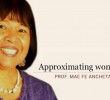In the Philippines, particularly in Mindanao, problems confronting families with members having unmet needs related to ageing are more pronounced today than ever due to further marginalization, deprivation and alienation brought about by chronic economic crisis in the country. In Davao City alone, using initial report of City Social Services and Development Office (CSSDO), there are more than 400,000 people whose ages are above 60. There are more or less 15,000 of them who have not been reached by the local government unit through its senior citizen outreach program whose immediate benefit is the issuance of a senior citizen card for a 20 percent discount on medicines, food and transportation. This mechanism of support for the senior citizens is without any doubt full of loopholes. Thus it only adds to the list of frustrations of the elderly.
Undeniably, by virtue of government’s very limited budget for social services the older persons do not enjoy adequate and appropriate services. They rely much on their families’ support which are but economically handicapped to meet the requirements of ageing members.
While there are many non-government and voluntary organizations in the city, those dealing with special groups especially for elderly remain very few and offer limited and far between services in select areas and communities.
Like in any other country, rights promotion for the older persons in the Philippines, especially poor older women, is relegated to the background. Ageism, concretely, adds to the factors in the appreciation of the human development process, even as perceptively, a life-cycle approach to responses to people’s needs and rights is also a weak dimension in social development efforts.
At this point, any attempts to increase the pension of the elderly covered by the Social Security System (SSS), I supposed, seriously consider the United Nations projections that:
- A marked increase in the population over the age of 60 years is expected in the future, particularly in the segment of those aged 80 years and over;
- In many countries, the increase in the proportion of the over-60 population is expected to become apparent over the next few decades, and especially during the first quarter of the twenty-first century; and
- Increasingly women will constitute the majority of these elderly populations.
The UN noted that the issue of the ageing of populations, with its vast implications both for overall development at the national level and for the welfare and safety of older individuals, is therefore one which will concern all countries in the relatively near future; it already affects some of the more developed regions of the world.
The national clamor for the passage of a bill (incidentally an initiative of Representative Neri Colmenares of the Makabayan bloc), granting an increase of the senior citizen’s monthly allowance under SSS, is a clear indication of the urgent need to promote the rights of the elderly and respond to the specific needs of this special sector yet the current dispensation rejected such a national strategic intervention as gleaned from the UN projections.
It is strategic as it is immediate. It addresses the overdue recognition of an aspect of the right to a holistic care of the older persons, at least to those who are fortunately subscribed to SSS, who rendered services unselfishly to the maintenance of society in immeasurable ways and tactically eases the families heavily burdened by the cost of living in this era of mal-development.










